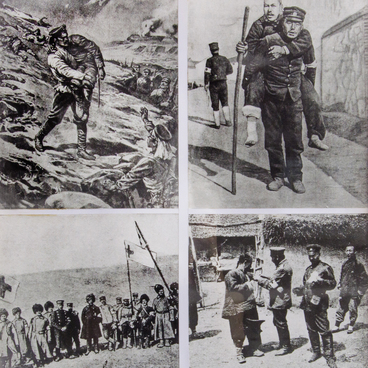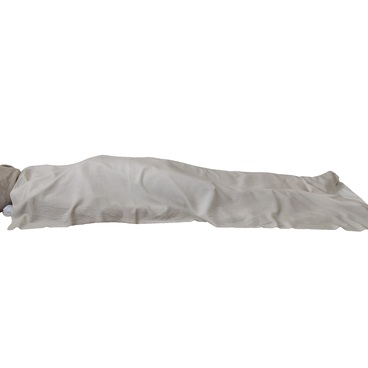Since 1918, Vladimir Lenin, the Chairman of the Council of People’s Commissars of the RSFSR, signed more than 200 official documents related to healthcare. The decree “On professional activities and rights of medical personnel” was one of those documents, securing the rights and obligations of doctors, as well as the grounds for prosecution of professional offenses.
In the 1920s, criminal cases began to be more frequently instituted against doctors all over the country — up to 48 cases a year. About 66% of such cases were initiated following severe injury or death of patients. At first, doctors were accused of inadequate treatment, and later they were considered “medical pests”, conspirators and foreign spies. The number of criminal cases against doctors in Leningrad was constantly growing, and in 1937, 262 cases were instituted. On average, the law enforcement authorities initiated five criminal cases per week.
The teachers and the senior executives of the Leningrad Military Medical Academy of the Workers’ and Peasants’ Red Army were not spared from the repressions. By 1937, it had become unsafe even to keep personal belongings and photographs of the arrested people.
The Military Medical Museum holds a photo album of the 1931 Military Medical Academy graduate Alexander Genkin. The album consists of 10 cardboard sheets with views of clinics and historic sites of Leningrad, as well as photographs of professors and graduates. There are cut-outs, shaded or black-stained pictures on every page.
The museum’s Memory Niche, where the damaged page of Genkin’s album is displayed, contains the surnames and photographs of 56 repressed professors of the Military Medical Academy. Sergey Anichkov, who since 1924 he had been the head of the Department of Pharmacology at the Military Medical Academy and had been engaged in military toxicology, was one of them. In 1937, after being reported to the authorities, he was sentenced to 10 years in prison, and there he engaged in the development of chemical weapons.
Pavel Timofeevsky taught at the Department of Military Sanitary Disciplines and was a major specialist in the field of organization and tactics of medical service. He took part in the Russo-Japanese War, World War I and the Russian Civil War. In 1937, he was sentenced to 10 years of forced labor camps, and in 1943, he died in the camp.
The Assistant Director of the Sanitation Administration under the Workers’ and Peasants’ Red Army (RKKA) Alexander Zaraisky, who participated in the World War I and the Civil War, was executed by shooting in February 1939, on suspicion of espionage and participation in a counter-revolutionary organization.
The consequences of the repressions were severe — the medical service of the USSR lost many experienced workers and trained specialists. During the World War II, due to the shortage of doctors, many Soviet soldiers died from wounds and diseases.
In the 1920s, criminal cases began to be more frequently instituted against doctors all over the country — up to 48 cases a year. About 66% of such cases were initiated following severe injury or death of patients. At first, doctors were accused of inadequate treatment, and later they were considered “medical pests”, conspirators and foreign spies. The number of criminal cases against doctors in Leningrad was constantly growing, and in 1937, 262 cases were instituted. On average, the law enforcement authorities initiated five criminal cases per week.
The teachers and the senior executives of the Leningrad Military Medical Academy of the Workers’ and Peasants’ Red Army were not spared from the repressions. By 1937, it had become unsafe even to keep personal belongings and photographs of the arrested people.
The Military Medical Museum holds a photo album of the 1931 Military Medical Academy graduate Alexander Genkin. The album consists of 10 cardboard sheets with views of clinics and historic sites of Leningrad, as well as photographs of professors and graduates. There are cut-outs, shaded or black-stained pictures on every page.
The museum’s Memory Niche, where the damaged page of Genkin’s album is displayed, contains the surnames and photographs of 56 repressed professors of the Military Medical Academy. Sergey Anichkov, who since 1924 he had been the head of the Department of Pharmacology at the Military Medical Academy and had been engaged in military toxicology, was one of them. In 1937, after being reported to the authorities, he was sentenced to 10 years in prison, and there he engaged in the development of chemical weapons.
Pavel Timofeevsky taught at the Department of Military Sanitary Disciplines and was a major specialist in the field of organization and tactics of medical service. He took part in the Russo-Japanese War, World War I and the Russian Civil War. In 1937, he was sentenced to 10 years of forced labor camps, and in 1943, he died in the camp.
The Assistant Director of the Sanitation Administration under the Workers’ and Peasants’ Red Army (RKKA) Alexander Zaraisky, who participated in the World War I and the Civil War, was executed by shooting in February 1939, on suspicion of espionage and participation in a counter-revolutionary organization.
The consequences of the repressions were severe — the medical service of the USSR lost many experienced workers and trained specialists. During the World War II, due to the shortage of doctors, many Soviet soldiers died from wounds and diseases.



